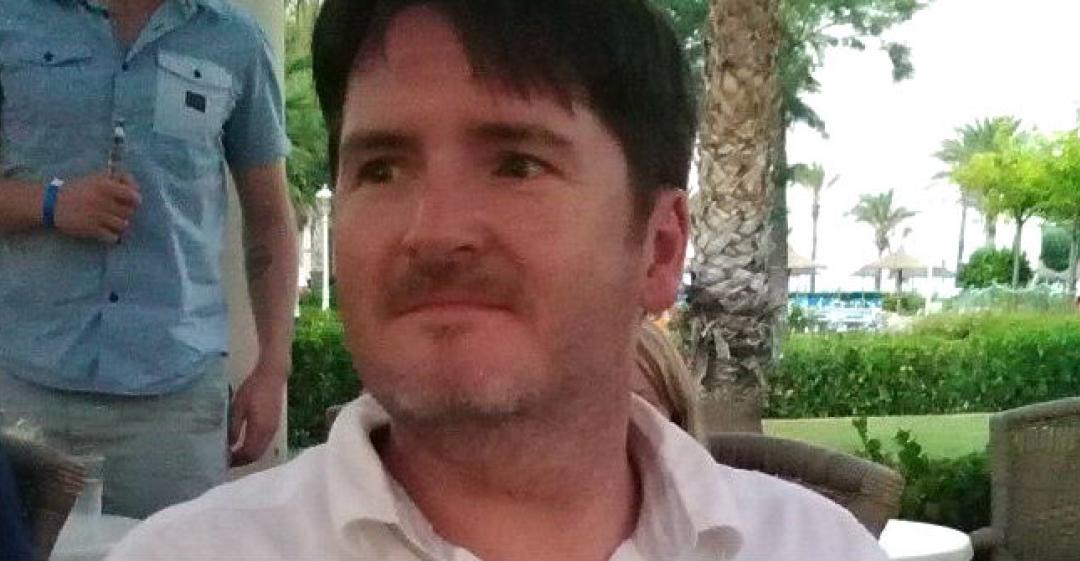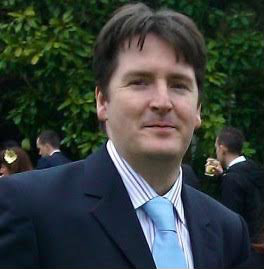“I needed more variety... and to feel like I was doing something worthwhile.”

What work were you doing previously?
IT Management.
What are you doing now?
I'm a paramedic.
I'm working full time on an ambulance with the London Ambulance Service, and studying part time for a degree with the Open University in Paramedic Sciences.
Why did you change?
I studied Sports Science at university and drifted into an IT career.
Following the sudden death of my father-in-law shortly after his retirement, I decided that spending my life doing a job that paid well but that I didn't enjoy wasn't something I could continue to do.
Talking with colleagues it was clear that whilst I had a talent for it I didn't have the passion for it that was really required. I wasn't spending time at home messing with computers – I was very much the exception amongst my colleagues.
I had conversations with my wife about my need to change and thought about what appealed. I desired a bit more variety in my work, and to feel like I was doing something worthwhile.
When was the moment you decided to make the change?
I was sitting in a cheap hotel in Nottingham.
I was attending a three-day course there for work. I was hating it and the hotel was awful. In fact, I was close to walking out.
After talking to my wife, I decided that I needed to do something about it. That night, I filled out the online application for the London Ambulance Service.
Are you happy with the change?
Yes.
I enjoy a massively varied role where I get to meet some amazing people and be of help to them in their darkest moments.
The job itself is stressful in a different way to my IT career, but to feel that I'm helping people, and being in a job that is respected, is a great feeling.
What do you miss and what don't you miss?
I miss having weekends off, as I work probably half of all my weekends now.
I don't miss the phone calls and emails when I'm on holiday because some core system has stopped working and I need to fix it.
How did you go about making the shift?
I was a first aider at work. When going through the training I found I really enjoyed it, and was told during the course I had a really good manner with the 'patients'.
I then looked into that area a little more and found it provided the variety of work I felt I needed.
In addition, a friend of my sister's was going down the same route; speaking to him reinforced my view that this was a good move. He advised me to dip my toe in the water by becoming a community responder in my local area. This voluntary role gave me exposure to ambulance work (including some shifts with existing staff) to ensure that it was something I would enjoy and be able to cope with.
I also spoke with someone who had some experience in careers counselling and I got advice from family and friends.
What didn't go well? What 'wrong turns' did you take?
My initial route in was with a direct student paramedic programme. However, as I failed my driving test for larger vehicles a few times, I missed the last group recruited this way.
As a result, I was put in a difficult and awkward position with my employer at the time, who'd already been asked for a reference. This caused a one-year delay in my entry to the ambulance service. When I finally started, I had to start at a lower level and then wait another year to get onto the programme.
How did you handle your finances to make your change possible?
I cut back on luxuries.
My football season ticket and Sky Movies subscription went first. As a family we also looked at our spending habits and saved money on our weekly shops by swapping to own-brand products.
My wife was able to increase the amount of hours she worked to make up some of the shortfall. The travel costs in the new role were also significantly cheaper than the rail season tickets I used to have to buy.
What was the most difficult thing about changing?
Changing to shifts was hard, probably more so for my family as they often had to be quiet because I needed to sleep.
It was also difficult moving from a fairly structured office environment to one where I didn't know what I would be doing from one hour to the next.
Alongside that, trying to calm and deal with people who are suffering (sometimes grieving) was a difficult skill to master.
What help did you get? 
My family has been very supportive.
My colleagues are always keen to help me learn and get to grips with the skills required, including how to deal with seeing things that are sometimes disturbing or upsetting.
What resources would you recommend to others?
The UK Ambulance Forum website has some great resources for budding paramedics.
The College of Paramedics is also a valuable source of information. And there are plenty of Facebook groups about becoming a paramedic too.
Speak to your local ambulance service. Most have a ‘Working for us’ section on their websites and details of community responder programmes. Plus, their executive board minutes are useful for getting a 'heads up' on their likely recruitment strategies over coming months.
What have you learnt in the process?
I've learnt that the old cliché, of enjoying your job being more important than the salary, is true.
I've also learnt that a shake of a hand from someone you have helped is worth way more than a large salary.
What do you wish you'd done differently?
I wish I'd done it sooner.
I also think that some more consultation with those that had made similar moves would have been useful. And doing things face to face more rather than online, which is not always the best way of assessing whether something is right for you.
What would you advise others to do in the same situation?
Speak to those currently doing the job you're interested in, as it may not be as you'd imagined.
Being a paramedic is nothing like Casualty or 24 Hours in A&E. There are frustrations with the job that you need to be aware of and feel able to cope with. Becoming a community responder is a great way to understand the job a little more and get some valuable exposure to the people you are likely to meet.
What lessons could you take from Peter's story to use in your own career change? Let us know in the comments below.



